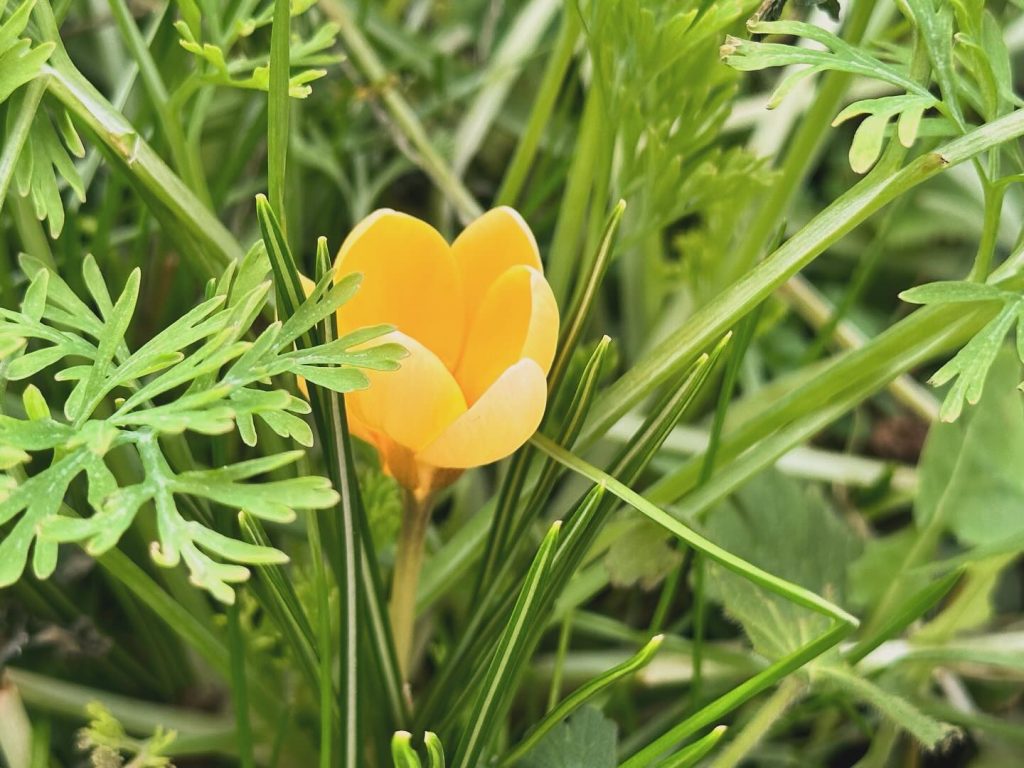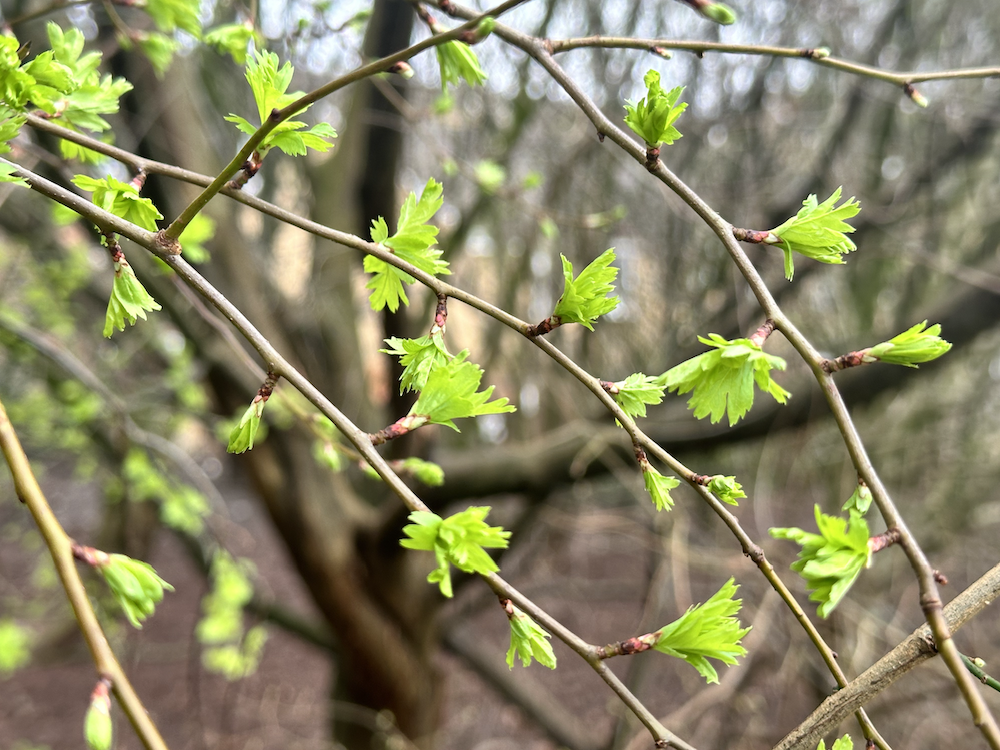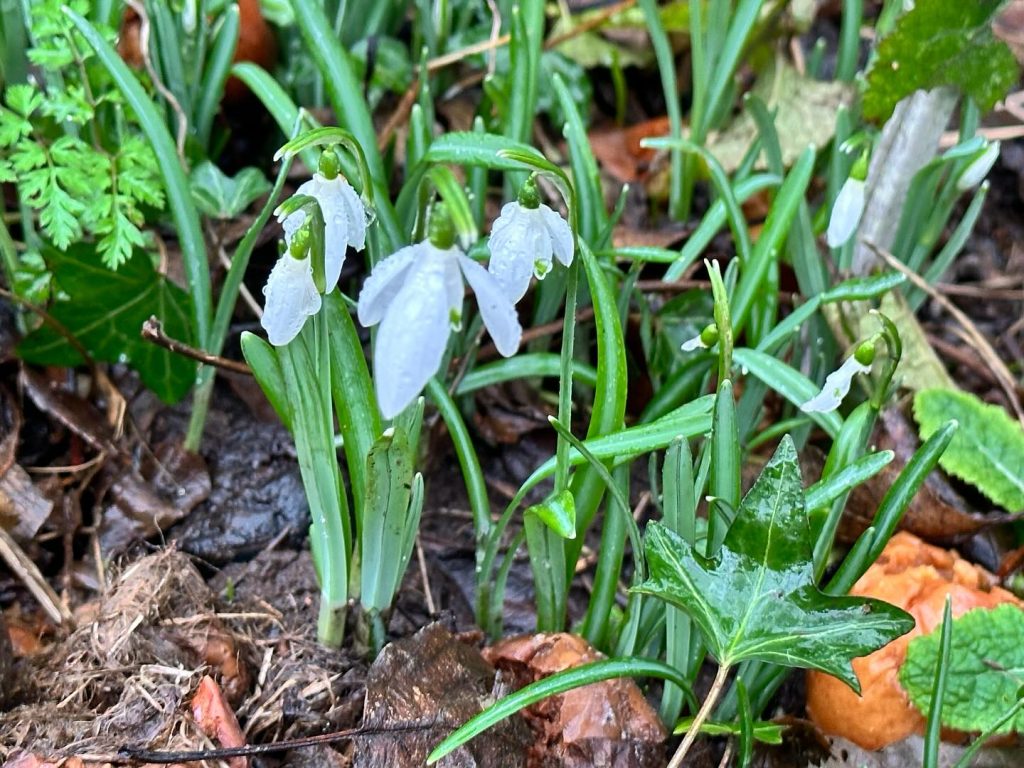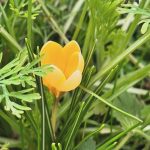On finding kindness and complexity in the patriarchal world
Good morning. I hope your weekend is soft and restful. As promised, I have backdated the January posts (here and here) for you and only posted the summary of each post on Substack. In this post, I am writing about the Slavic celebrations of midwinter with the Festival of Veles, quiet preparation for spring, enjoying reflection, the slow pace of those colder days and the practice of noticing the world around us. I will also speak about intentionally weeding out internalised patriarchy and resting from this work.
I always assumed that the word January in Polish (“styczeń”) stands for the month that touches the previous year (from the word “style”, which means “touching”), but it actually describes the activity of burning wood. The new Slavic names of months are very close to the natural cycles and agricultural activities. So February (“luty” in Polish) stands for “harsh, cruel, severe”. And isn’t that just so? The days are unpredictable, with the sun still going down quite early. Those of us who garden need to hunt for good weather and get work done fast – with the demands of the modern lifestyle, this requires a lot of discipline. I was so busy with academic and business life, that I wasn’t able to go to our allotment since December. Yesterday, I finally made it there, only to discover that winter was kind, and most of our work paid off: the allotment still sleeps and rests in preparation for a new growing season. I now have a lot of clearing work to do, of course, but that is the nature of February. At the end of this month, we will see the first wild garlic emerge in the local woodlands (to me, a real sign of spring), so it is nice to have a deadline for all the cleaning up on the plot. I cleared out the back garden yesterday in preparation for spring mulching and soil improvements. It feels so good to find the little snowdrops and rose buds lost in the winter mess until now. I pruned the roses and removed all the weeds, making space for spring bulbs to grow. Life is still bare and cold but hopeful. All this open space signals an opportunity for growth. Lia Leendertz writes in her Almanac: “This month is all about finding the magic in the moment, noticing the extraordinary in the everyday. The days are full of little joys if we take time to tune into our senses. Look down to notice ice-patterned puddles; listen to the rustle of the little wren darting through the undergrowth; face the sun and feel its warmth on your skin; smell the elusive scent of winter-flowering honeysuckle…these are the gifts of February when life happens in detail.”

The National Trust offer a good reminder and tip for those colder days – sorting through seeds! We usually start the seeds on our plot at the end of March, but if we want to propagate them at home, it’s time to plan now. And to plan, it may be helpful to have the seeds in order. I am a little bit ahead this year, relaxed that this year we will not be propagating, just working with grown plants. I spent a day in January going through all our seeds because this winter is hard on small businesses, so I have supported a few of my favourites, and now I do not need new ones. I am not going to the Bristol Seed Swap today (local free seed exchange) because I failed to collect seeds last year. I am worried about catching another cold in the crowded building. And we have impressive supplies now. But I do need to think about smart seed storage, so I may think about that. I have a few printouts of the Real Seeds seed packets – they are so beautiful – that I may spend an evening putting them together. That would be a good way of actually preparing storage for seed collection in autumn and for the next Bristol Seed Swap in 2025 (to close another cycle!).
Another big task is to collect all the wood and larder weeds in the allotment for our annual bonfire. We burn the mess and use the ash to improve the allotment soil. This way, we reuse everything in the plot. We missed the beginning of the month due to our illness, but I will still think about the Slavic Festival of Veles (marked with bonfires) when we get around to doing it. Veles, the Slavic god of the underworld, is actually also the god of the earth, waters, forests, music, magic, trickery, cattle and wealth. Slavic mythology allows gods’ nuance and complexity – no one is just good or bad – thus making them feel closer to the core of Shamanism. Today is my last Therapeutic Shamanism lecture, so I am closing one small circle with this learning: allowing complexity of views and equal distribution of power for all, without an ego at play. The founder, shamanic practitioner (the word “shaman” is reserved for specific spiritual practitioners) and psychotherapist Paul Francis, writes: “Almost everything about who we think we are, about how we define ourselves, is just a collection of stories. Personal stories, family stories, societal stories – all stories. This is what ego is. The ego is a collection of stories. […] It is a made-up thing. It is something that we created for ourselves and co-created with others.”

I think about this a lot, especially since, in March, I will be training for Narrative Exposure Therapy for PTSD – an approach that works with our life stories for healing. I think a lot about patriarchal women and really think about the liberation psychology concept of re-authoring myself. How much of my upbringing was a story of internalised patriarchy? Originally, the Slavic core deity was the Great Goddess. Only with the rise of patriarchal societies was she diluted into other smaller deities (including Baba Yaga) and replaced with the male supreme god Perun. I find it sad, especially this spring, as I engage in a lot of conversations with female friends who – like me – experience increased misogyny (from people of all genders) in our everyday interactions. What have we done to ourselves? Why do we reenact a power dynamics that puts some people down? I was mocked by a powerful male social media influencer this week for flagging up the overused word “addicted” in relation to social media. I got angry and then told off by his fellow friend (the standard tribal move online is to recruit friends to respond instead of taking responsibility and apologising). Women and minorities get this a lot: the first step is “Why so serious?” followed smoothly by “Why so angry?” – all in an attempt to ignore and silence but also target, mock and hurt. All to ultimately uphold a power structure that favours the very few above all humankind. Those behaviours have a cost and may just be the actual fall of humans.
I am spending this February disengaging, slowing down, and thinking about the internalised binary structures. I imagine patriarchy as a fluid funghi growing inside of me softly and spreading every time it is fed. So, like with intrusive weeds, I tackle it bit by bit, watching its constant growth and not assuming it will ever go out of my system. Just like I did yesterday in my garden. A few years ago, I picked up an orange hawkweed from a path. I love the flowers, and I wanted to grow them in my garden. I had no idea just how invasive they are. Smart in the way they spread their seeds in the wind (just like dandelions), but incredibly powerful in how their roots just run through the soil. Fortunately, I read up about them and decided to contain them in one pot, but this spring, the pot is so full of roots that the roses and spring bulbs have no chance of thriving. So yesterday, I pulled out the key webs of roots and looked around for self-seeded new plants. The pot looks amazing, but I know I will now have to watch it (and all the pots around it) for new plants and pull them out until the entire root system is out. This may take a few years, but I am determined to correct my mistake. Internalised toxic, hurtful stories need ongoing work – liberating ourselves and our tribes from such complex, smart, invasive ideologies takes time and effort. And requires a huge amount of rest, too.

Reflection
My response to weeding out toxic stories is to practice kindness and love. The upcoming Valentine’s Day gives me an opportunity to lean into those feelings. The key practice for February from Nature’s Calendar is to notice heart shapes in nature and leave them on public paths and walls for others. I love street art, and I think this is a form of it, so I will do it. Every single ivy leave is a perfect opportunity for this! So today, I am inviting you to practice focused noticing online:
- “Just Google it” – don’t ever underestimate the power of a good old Google search – spend a moment browsing Google results for Nature heart shapes.
- “Pinterest it!” – Pinterest has a fantastic search functionality; do the same there and collect your Natrue heart shapes for darker, heavier days.
- Make the social media hashtags work for you – check Instagram too – this one will come up with a lot of ads and not always useful recommendations, so this is a perfect opportunity to weed things out. Notice when you get distracted and by what, move on to meaningful results. Practice intentional search and good quality of attention. Yes, Meta tools are designed to distract you, so resist them. Practice making the platform work for you – for kindness and love.
(I am off to celebrate my child’s birthday in a beautiful Robun restaurant in Bath and will maybe hunt for snowdrops there today. We need nurturing, lovely people and Mother Nature to come back to our kind and loving selves. I wish you a soft Sunday)

